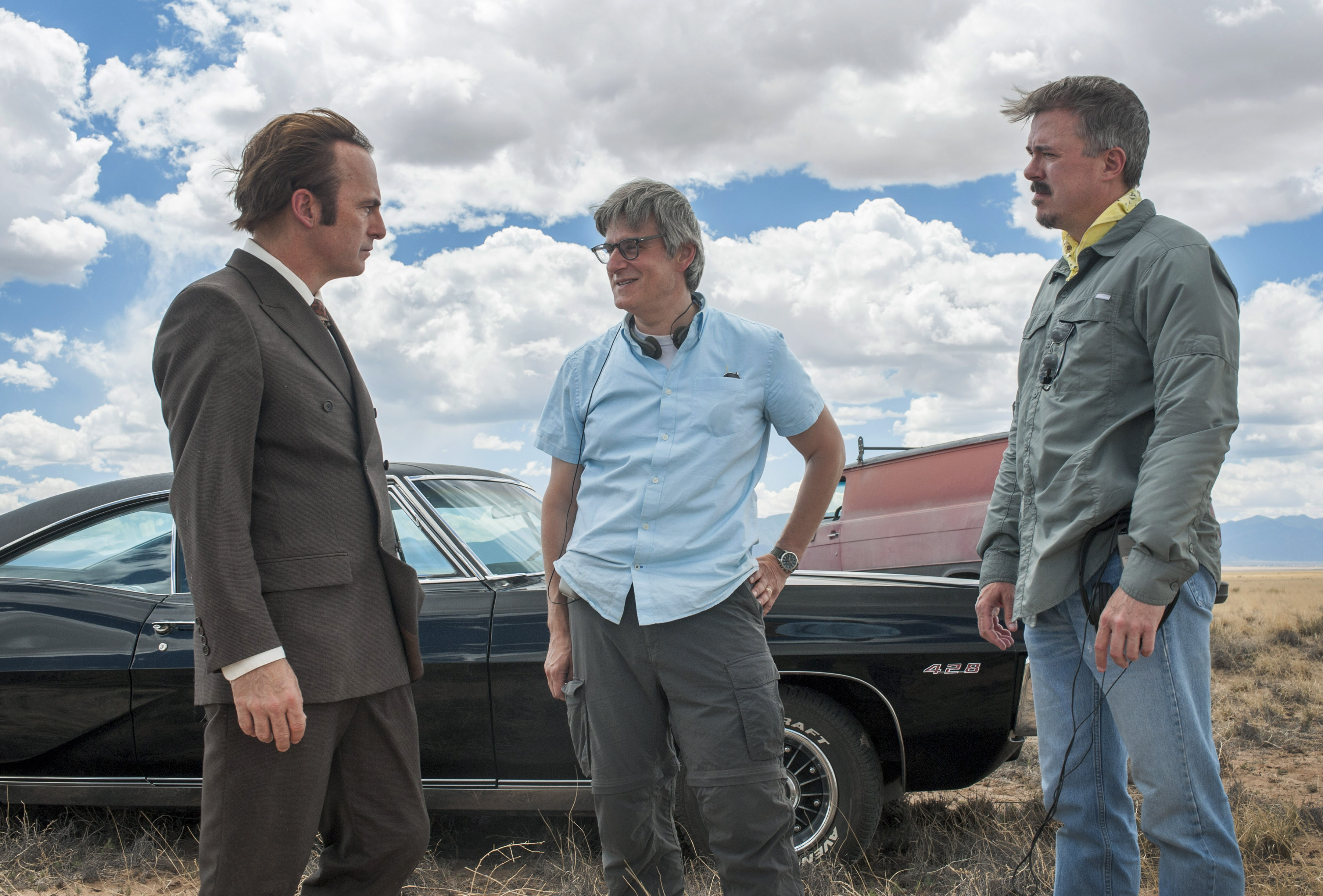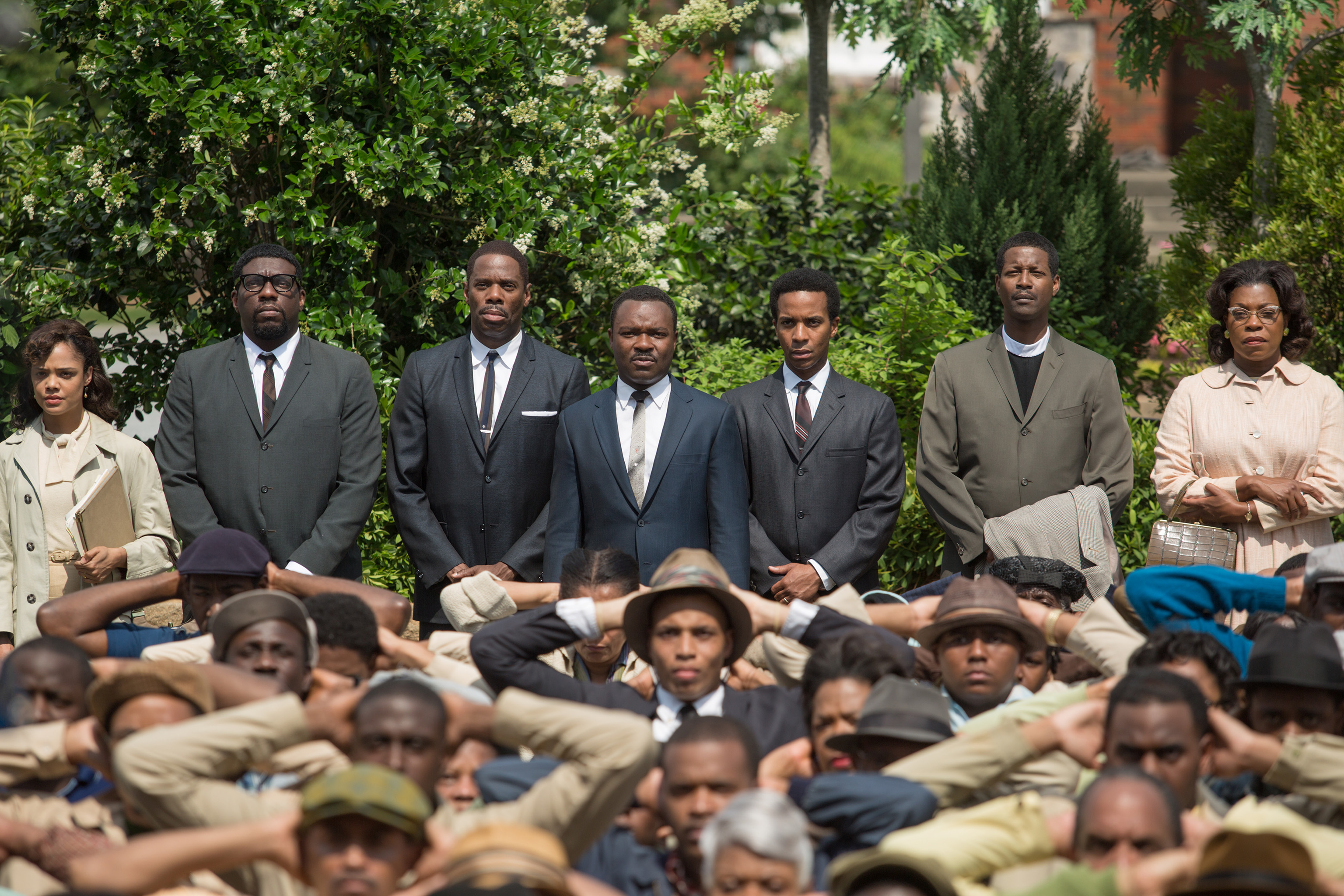 Of all of Dawn of the Planet of the Apes’ successes, the most significant is the way that it frames its conflict. This is not a movie where I found myself rooting for the humans to destroy the apes, or a movie that made humanity out to be the bad guys who destroy everything in their path. Instead, both sides are made to be sympathetic and are simultaneously given reasons to be afraid of each other. It’s a much more realistic and, dare I say it, “human” way to look at war and diplomacy than one would expect in a summer movie, especially one where a whole “side” of the potential conflict is made-up of talking, horse-riding, CGI apes. Instead of man vs. ape, the conflict is between war and peace, and I found myself very much on the side of peace, despite the obvious future of the “Planet of the Apes” and the demands of a big-budget summer release. I actually cared about both sides.
Of all of Dawn of the Planet of the Apes’ successes, the most significant is the way that it frames its conflict. This is not a movie where I found myself rooting for the humans to destroy the apes, or a movie that made humanity out to be the bad guys who destroy everything in their path. Instead, both sides are made to be sympathetic and are simultaneously given reasons to be afraid of each other. It’s a much more realistic and, dare I say it, “human” way to look at war and diplomacy than one would expect in a summer movie, especially one where a whole “side” of the potential conflict is made-up of talking, horse-riding, CGI apes. Instead of man vs. ape, the conflict is between war and peace, and I found myself very much on the side of peace, despite the obvious future of the “Planet of the Apes” and the demands of a big-budget summer release. I actually cared about both sides.
Author: Ross Miller
-
Dawn of the Planet of the Apes Review
-
Better Call Saul Review
 (I will be discussing spoilers for the first two episodes below)
(I will be discussing spoilers for the first two episodes below)A lot can be said for Better Call Saul, and how it does or doesn’t recapture the magic of Breaking Bad in its first two episodes, and I’m sure I’ll get to a lot of it below. However, first I would like to examine a single shot in one of the first scenes of the pilot.
The scene, a courtroom waiting for public defender Jimmy McGill (the future Saul Goodman), is a beautifully executed moment of patient impatience. The sound design in this scene is superb; the omnipresent hum of the fluorescent lighting, the pitter-patter of the court stenographer, the ticking of the clock, the creaking of chairs, the occasional stray cough, the slushing of ice in a Big Gulp convenience store soda, all contributing to the rooms increasing ennui. The prosecuting attorney, a stern-looking man in a suit, appears to be jotting notes on his notepad. We then get “the shot,” a close-up of his notepad, where he has been drawing a barbarian on a unicorn.
-
Selma Review
 It’s common knowledge in the entertainment industry that the studios, both major and independent, release all of their most likely “award” movies towards the end of the year. This has more to do with marketing and campaigning than anything; nobody trusts academy voters to remember more than a few months back, and this way they can spam the trades with “For Your Consideration” ads to remind people of their great new movie.
It’s common knowledge in the entertainment industry that the studios, both major and independent, release all of their most likely “award” movies towards the end of the year. This has more to do with marketing and campaigning than anything; nobody trusts academy voters to remember more than a few months back, and this way they can spam the trades with “For Your Consideration” ads to remind people of their great new movie.This means that you typically see two types of films release at the end of the year. The first is the kind of film that a studio or distributor found to be utterly compelling and unique, and figured might stand a chance as an award contender. This year, Birdman is a good example: something off-beat but interesting that they could push during award-season. On the other hand, you have the “important” film, the kind that doesn’t necessarily have to be good because its subject matter alone places it on a pedestal. These are often the tragic-then-inspiring biopics, or the topical message movies, or the historical event pieces.
-
Destiny: Skinner Box Gaming and the Myth and Truth of the 30 Seconds of Fun
 “In Halo 1, there was maybe 30 seconds of fun that happened over and over and over and over again. And so, if you can get 30 seconds of fun, you can pretty much stretch that out to be an entire game.”
“In Halo 1, there was maybe 30 seconds of fun that happened over and over and over and over again. And so, if you can get 30 seconds of fun, you can pretty much stretch that out to be an entire game.”The above is a relatively famous quote in the gaming scene, from Bungie game designer Jaime Griesemer. While Griesemer meant to convey that his team thought of the various set-pieces in the game as 30 second loops of varied and fun gameplay, each unique in their own right, this is not the message that most developers and gamers took from the quote. Instead, it seemed to speak of core gameplay mechanics, and the fact that as long as there are “30 seconds of fun” in the basic mechanics, then you’ve got a great game regardless of other factors.
-
Noah Review
 It seems that there are two types of biblical films. The first is the type that we’ve seen a glut of over the past year: Heaven is for Real, God’s Not Dead, Left Behind, Saving Christmas, etc. These movies pander hard to their respective (usually Christian) audiences, telling them how right they are and propping up straw man figures for them to tear down together. On the other hand, you have the type of movie that tries to tell compelling stories for a wider, sometimes-secular audience. Here, you’ve got your Ten Commandments, your Last Temptation of Christ. Every once in a while a film becomes a crossover success (you could argue this happened with The Passion of the Christ), but Christian and biblical films generally must decide which audience they wish to please.
It seems that there are two types of biblical films. The first is the type that we’ve seen a glut of over the past year: Heaven is for Real, God’s Not Dead, Left Behind, Saving Christmas, etc. These movies pander hard to their respective (usually Christian) audiences, telling them how right they are and propping up straw man figures for them to tear down together. On the other hand, you have the type of movie that tries to tell compelling stories for a wider, sometimes-secular audience. Here, you’ve got your Ten Commandments, your Last Temptation of Christ. Every once in a while a film becomes a crossover success (you could argue this happened with The Passion of the Christ), but Christian and biblical films generally must decide which audience they wish to please.